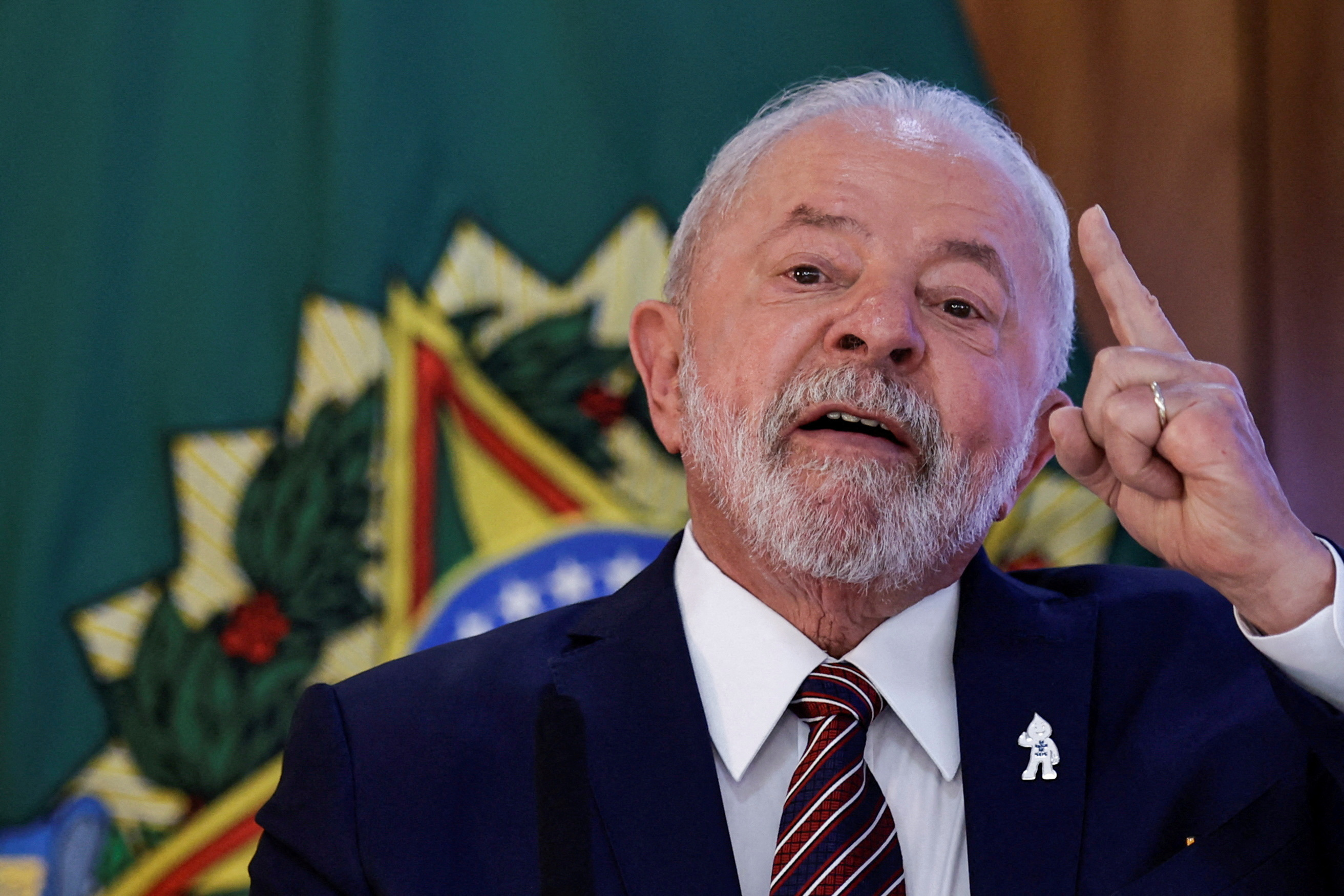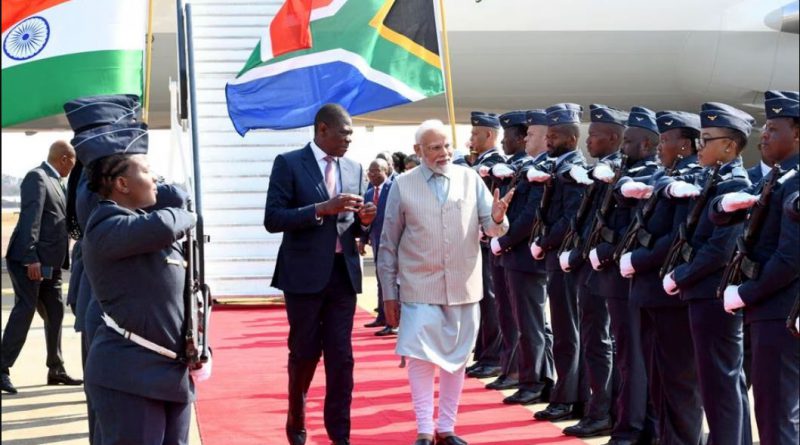BRICS no rival to G7 and G20, Brazil’s Lula says as bloc meets
Johannesburg (Reuters) – Brazilian President Luiz Inacio Lula da Silva said on Tuesday that the BRICS bloc of nations aims to organise the developing Global South and is not meant to rival the United States and the Group of Seven (G7) wealthy economies.
His comments point to a divergence of vision as leaders of the bloc – Brazil, Russia, India, China and South Africa – arrived in Johannesburg for a summit that will weigh expanding the group as some members push to forge it into a counterweight to the West.
Heightened global tensions provoked by the Ukraine war and Beijing’s growing rivalry with the United States have pushed China and Russia – whose President Vladimir Putin will attend the meeting virtually – to seek to strengthen the BRICS bloc.
Their vision of an expanded BRICS capable of rivaling U.S. and European global dominance has, however, been met with skepticism by some members. And the outcome of the debate over enlargement could determine the future of a bloc long criticised for a lack of cohesion.
“We do not want to be a counterpoint to the G7, G20 or the United States,” Brazil’s Lula said on Tuesday during a social media broadcast from Johannesburg. “We just want to organise ourselves.”
Summit host South Africa welcomed China’s Xi Jinping, the leading proponent of enlarging BRICS, for a state visit on Tuesday morning ahead of meetings with the grouping’s other leaders planned for later in the day.
Advertisement · Scroll to continue
“I am confident that the upcoming summit will be an important milestone in the development of the BRICS mechanism,” Xi said shortly after his arrival in South Africa.
South African President Cyril Ramaphosa said during a bilateral meeting with Xi that their two countries had “similar views” regarding expansion.
“We share your view, President Xi, that BRICS is a vitally important forum which plays an important role in the reform of global governance and in the promotion of multilateralism and cooperation throughout the world,” he said.
Indian Prime Minister Narendra Modi are also attending the Aug. 22 to 24 summit.
Putin, who is wanted under an international arrest warrant for alleged war crimes in Ukraine, will not travel to South Africa.

[1/9]Brazil’s President Luiz Inacio Lula da Silva gestures during a ministerial meeting to celebrate the first 100 days of his government at the Planalto Palace in Brasilia, Brazil, April 10, 2023. REUTERS/Ueslei Marcelino/File Photo Acquire Licensing Rights
Beyond the enlargement question, boosting the use of member states’ local currencies is also on the summit agenda. South African organisers, however, say there will be no discussions of a BRICS currency, an idea floated by Brazil earlier this year as an alternative to dollar-dependence.
POINT OF CONTENTION
BRICS remains a disparate group, ranging from China, the world’s second biggest economy now grappling with a slowdown, to South Africa, an economic minnow facing a power crisis that’s led to daily blackouts.
Russia is being hammered by sanctions over its war in Ukraine is keen to show the West it still has friends.
India, however, has increasingly reached out to the West, as has Brazil under its new leader.
Two members – India and China – have periodically clashed along their disputed border, adding to the challenge of decision-making in a group that relies on consensus.
Expansion has long been a goal of China, which hopes that broader membership will lend clout to a grouping already home to some 40% of the world’s population and a quarter of global GDP.
The leaders will hold a mini-retreat and dinner on Tuesday evening where they are likely to discuss a framework and criteria for admitting new countries.
Russia is keen to bring in new members.
India, which is wary of Chinese dominance and has warned against rushing expansion, has “positive intent and an open mind”, Foreign Secretary Vinay Kwatra said on Monday. Brazil, meanwhile, is concerned that expanding BRICS will dilute its influence, though Lula reiterated on Tuesday his desire to see neighbour Argentina join the bloc.
While a potential BRICS enlargement remains up in the air, the grouping’s pledge to become a champion of the developing world and offer an alternative to a world order dominated by wealthy Western nations is already finding resonance.
Over 40 countries have expressed interest in joining BRICS, say South African officials. Of them, nearly two dozen have formally asked to be admitted, with some expected to send delegations to Johannesburg.


